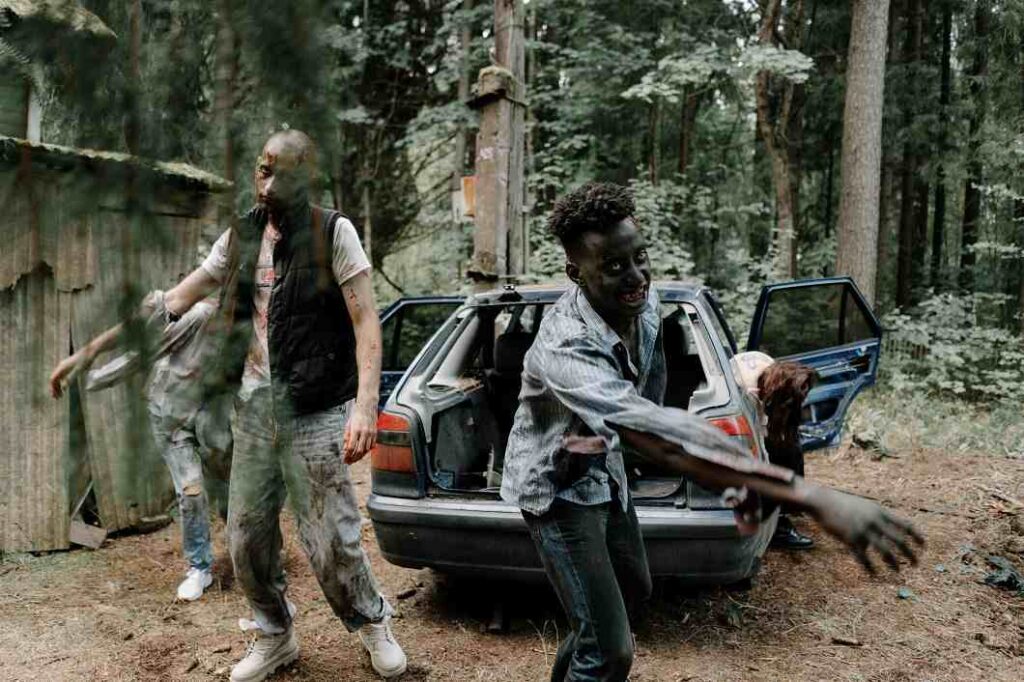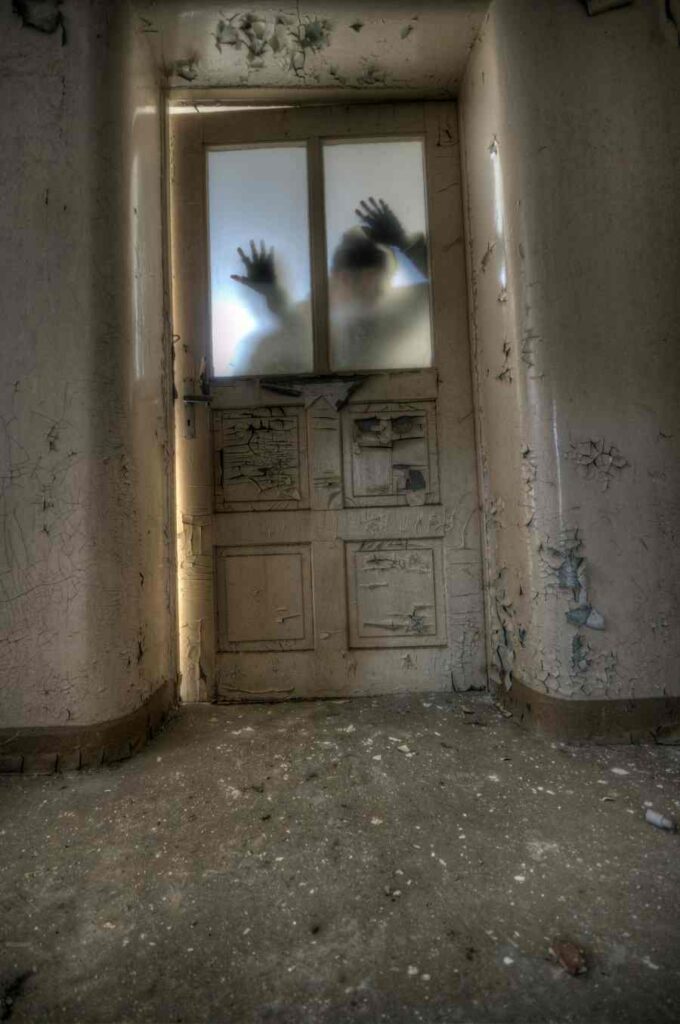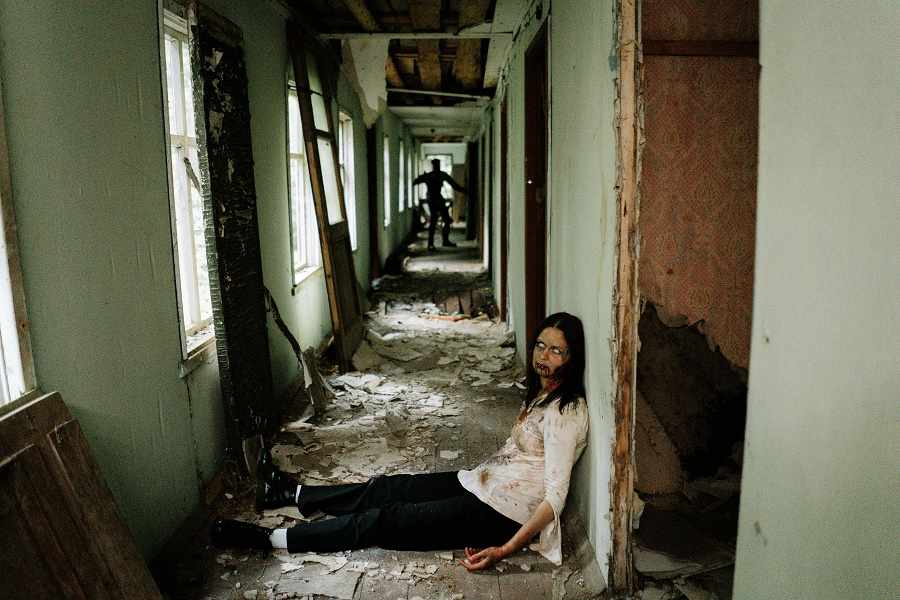
Zombies are not real (yet) in the sense portrayed by Hollywood and popular media. While the zombie myth has roots in cultural traditions and folklore, it is important to note that there have been some real-life phenomena that bear some resemblance to zombie-like behaviour or existence and that not even the world’s greatest scientists can predict the future.
You can read Daniel’s futuristic apocalyptic short story here.
So, let’s say a zombie apocalypse was to happen in Nigeria today – would you survive? What actions would you take to survive?
Surviving a zombie apocalypse requires a combination of strategic planning, resource management, and real practical skills.
Here’s a comprehensive guide to help you prepare and potentially survive a zombie scenario in Nigeria:
A. Before the Apocalypse:
1. Build a Survival Kit:
A zombie outbreak usually starts from a small location from where it spreads to other regions. If the outbreak is not contained, then it is likely that the event will turn into a full-blown apocalypse. The time frame between the outbreak and onset of an apocalypse gives individuals a short opportunity to make some preparations.
- Food and Water: Stockpile non-perishable food items (canned goods, dried foods) and hide away large water sources. Remember that the natural water bodies will immediately get polluted by all the death and decay once a zombie apocalypse sets in.
- Medical Supplies: Make sure to include first aid kits, prescription medications and enough antibiotics in your kit.
- Tools and Equipment: The top essentials include duct tape, rope, a flashlight with extra batteries, a manual can opener, and a portable stove or fire-starting tools. A baseball bat might also come in handy. A long wood pestle will suffice if you can’t find a baseball bat.
- Clothing and Shelter: You don’t dress up during an apocalypse so no need for blazers or luxury gowns. You only need functional clothing materials. Pack a durable shirt and a pair of trousers, sturdy footwear, sleeping bags, blankets, and a tent.

2. Plan Your Escape:
- Evacuation Routes: Identify multiple escape routes from your home and neighbourhood. Practice evacuation drills.
- Mark Safe Locations: Choose potential safe havens such as remote cabins, military bases, or locations with natural barriers.
- Acquire Life-Saving Skills: Learn basic self-defence techniques and how to use weapons safely. Get trained in first aid and CPR. Learn how to start a fire, purify water, build a shelter, and forage for food.
B. During the Apocalypse:
1. Stay Informed and Alert:
- News and Updates: Stay tuned to emergency broadcasts for information on the zombie outbreak and safe zones.
- Situational Awareness: Be aware of your surroundings, avoid high-risk areas, and stay vigilant for zombies and other threats. Remember that during a zombie apocalypse, zombies are not the only thing to fear.
2. Fortify Your Location:
- Secure Entry Points: Reinforce doors and windows with barricades. Use furniture, boards, and other materials to block access.
- Create a Safe Room: Designate a room with minimal entry points as a last-resort refuge.

3. Always Travel Light and Smart:
- Move Quietly: Avoid attracting attention by moving silently and during low-light conditions.
- Stay Together: Travel in groups for safety, ensuring everyone has a role and stays within sight.
- Avoid Big Cities: Cities are high-risk areas due to population density. Opt for rural or remote areas.
C. Long-Term Survival:
1. Establish a Base:
- Choose a location that is easy to defend, has access to resources, and can be fortified.
- Ensure the location can support long-term living with access to water, food sources, and shelter.
2. Gather and Manage Resources:
- Food and Water: Grow your own food, hunt, fish, and gather wild edibles. Purify and ration water.
- Energy: Utilize renewable energy sources like solar panels and wind turbines if possible.
3. Form a Community:
- Teamwork: Work together with others to share skills, resources, and responsibilities.
- Roles and Duties: Assign specific roles based on individual skills (e.g., medical care, security, foraging).
4. Stay Healthy:
- Hygiene: Maintain cleanliness to prevent disease. Properly dispose of waste.
- Physical Fitness: Keep in shape to ensure you can defend yourself and perform necessary tasks.
- Mental Health: Support each other emotionally and mentally. Establish routines to maintain a sense of normalcy.
D. Dealing with Zombies:
1. Avoidance is a great strategy:
- Minimize Encounters: Forget what is depicted in some Zombie movies where actors go on zombie hunts or are shown having fun killing zombies. Minimizing your encounter with the undead is a great strategy to remain alive. Stay hidden and avoid direct confrontation with zombies whenever possible.
- Noise Discipline: Keep noise levels low to avoid attracting zombies.
2. Defence:
- Weapons: Use melee weapons like baseball bats, crowbars, or machetes to silently dispatch zombies. Firearms should be used sparingly due to noise and ammo scarcity.
- Combat Skills: Aim for the head, as this is typically portrayed as the most effective way to neutralize zombies.

3. Evacuation:
- Know When to Move: If your location becomes compromised, be prepared to evacuate quickly and safely.
- Have a Plan B: Always have an alternative safe location in mind.
4. Study the Zombies
Remember that the zombies you may be dealing with might differ from how they are portrayed in your favourite movies or TV shows. For example, you might find that there are other easier ways to kill them or discover that they are evolving or becoming stronger. Also, pay particular attention to how people get infected and turn. Any knowledge can be utilized as an edge to survive the creatures.

Surviving a zombie apocalypse requires a mix of practical skills, strategic planning, and adaptability. By being prepared and staying vigilant, you can increase your chances of making it through such a fictional scenario.


